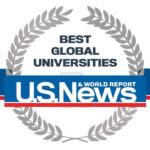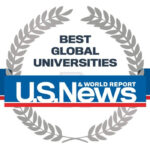University Rankings 2024 present a complex landscape of global higher education. These rankings, produced by various organizations using different methodologies, significantly influence student choices, university strategies, and the overall perception of academic excellence. Understanding the intricacies of these rankings—their methodologies, biases, and impact—is crucial for students, institutions, and policymakers alike. This overview delves into the key aspects of university rankings in 2024, providing insights into their creation, influence, and future trends.
From the top global universities to subject-specific rankings, we will explore the factors contributing to a university’s success, examining the role of research output, student satisfaction, financial resources, and alumni networks. We will also discuss the potential limitations and biases inherent in these ranking systems, encouraging a critical evaluation of their significance. The goal is to provide a balanced perspective, empowering readers to navigate the world of university rankings with informed discernment.
Methodology of University Rankings: University Rankings 2024

University rankings, while widely influential, are complex and often debated. Understanding their methodologies is crucial to interpreting the results accurately and recognizing their limitations. Different ranking organizations employ various approaches, leading to discrepancies in the final standings. This section explores the methodologies of major ranking organizations, compares their weighting of key factors, and highlights potential biases.
Different Ranking Methodologies
Major ranking organizations, such as QS, Times Higher Education (THE), and ARWU (Shanghai Ranking), utilize distinct methodologies to assess universities. These methodologies often combine multiple indicators, but the specific metrics and their weighting differ significantly. For example, QS places a strong emphasis on academic reputation surveys, while THE incorporates a broader range of factors, including research output, citations, and teaching environment. ARWU, conversely, focuses heavily on research excellence, particularly Nobel Prizes and highly cited researchers. The variations in methodologies directly impact the resulting rankings, demonstrating the lack of a universally accepted standard.
Weighting of Research, Teaching, and Student Experience, University rankings 2024
The relative importance assigned to research, teaching, and student experience varies considerably across different ranking systems. QS, for instance, gives substantial weight to employer reputation and faculty/student ratio, reflecting the importance placed on teaching quality and career prospects. THE, while also considering teaching, allocates a larger proportion to research impact, measured through citations and publications. ARWU’s methodology heavily prioritizes research output, often to the detriment of teaching and student experience indicators. This variation in weighting underscores the different priorities embedded within each ranking system. A university excelling in research might rank highly in ARWU but less so in QS if its teaching and student experience scores are lower.
Potential Biases in Ranking Systems
Several inherent biases can skew university rankings. The reliance on surveys, for instance, can introduce subjectivity and potential for bias based on the respondent pool. Geographic biases can also emerge, with institutions in certain regions potentially over- or under-represented. Furthermore, the emphasis on research output may disadvantage universities focusing on teaching or specific areas of study that don’t generate high citation counts. The weighting given to specific metrics also reflects underlying values and priorities, potentially leading to a skewed representation of university quality. For example, a system heavily weighted towards research citations might favor large, research-intensive universities over smaller, teaching-focused institutions, even if the latter provides a superior learning environment.
Hypothetical Ranking System
A more balanced and transparent ranking system could incorporate a broader range of indicators and explicitly address potential biases. This hypothetical system would utilize the following criteria and weighting:
| Criterion | Weighting | Description |
|---|---|---|
| Research Output (Publications, Citations) | 30% | Measured by normalized citation counts and publication volume in high-impact journals, adjusted for field-specific differences. |
| Teaching Quality (Student-Faculty Ratio, Teaching Evaluations) | 30% | Incorporates both quantitative measures (student-faculty ratio) and qualitative data (standardized student evaluations). |
| Student Experience (Graduation Rates, Student Satisfaction Surveys) | 20% | Combines objective metrics (graduation rates) with subjective data (validated student satisfaction surveys). |
| Diversity and Inclusivity (Student and Faculty Demographics) | 10% | Assesses the representation of diverse groups within the student body and faculty. |
| Community Engagement (Outreach Programs, Partnerships) | 10% | Measures the university’s contribution to the broader community through partnerships and outreach initiatives. |
This hypothetical system attempts to provide a more holistic assessment of university quality, mitigating some of the biases present in existing ranking systems. The balanced weighting across research, teaching, student experience, and broader societal impact aims to reflect a more comprehensive understanding of a university’s contribution.
In conclusion, the 2024 university rankings offer a snapshot of the global higher education landscape, but it’s a snapshot that needs careful interpretation. While rankings provide valuable data points, they should not be the sole determinant in choosing a university. Factors such as individual academic goals, program fit, campus culture, and financial considerations are equally, if not more, important. A nuanced understanding of ranking methodologies, biases, and the multifaceted aspects of university excellence is key to making an informed decision. Ultimately, the best university for an individual is the one that best aligns with their unique aspirations and circumstances.
University rankings 2024 are eagerly anticipated by prospective students worldwide. The methodologies used to compile these lists often spark debate, but understanding the broader context of university ranking systems is crucial. Ultimately, the 2024 rankings will undoubtedly influence many students’ choices, highlighting the ongoing importance of these annual publications.
University rankings 2024 are eagerly anticipated by prospective students worldwide. A key institution frequently analyzed is the University of Southern California, whose performance is often a significant factor in overall rankings. You can find detailed information on the university of southern california ranking to help inform your understanding of this prestigious university’s standing within the broader context of university rankings 2024.



